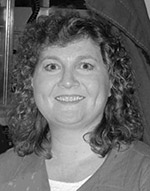
Robohub.org
Lynne Parker on “What were the highlights at IROS/iREX this year?”
I found the plenary speeches at IROS to be especially interesting. Marc Raibert gave an entertaining talk on the robots being developed at Boston Dynamics. It’s encouraging to see that robots are becoming more and more robust, even for very challenging domains. Marc emphasized his company philosophy of pushing robots until they break, and then learning from those breakdowns to improve robot performance and reliability. Learning from failure is often overlooked in robotics, but is critically important for achieving usable systems. It’s also a good life lesson!
Masayuki Yamato gave an inspiring talk on transplantable cell sheets, and how they can help speed the recovery from many different diseases and surgeries. He showed, complete with surgery videos (not for the faint of heart!), how his cell sheet therapy technology can address many medical problems in the eye, heart, esophagus, etc. While robotics isn’t a main part of the research, it is clear that robotics is an important tool for enabling these clinical applications that can change people’s lives.
In the third plenary, Tim Lüth challenged the audience to not automate for the sake of automation, but to show how automation can improve the outcome in people’s lives. He showed a variety of successful devices that his team has developed for medical applications, and made a compelling argument that new technologies can be more readily accepted if they are quickly designed and close in nature to the non-automated medical approaches. He argued that simpler robots that are custom designed and manufactured for a specific patient and/or procedure might revolutionize medicine in the future.
One last highlight to mention from IROS is the iREX robot exhibition. The sheer number of industrial and automation robots on display was so impressive. The robots were fast, precise, and made excellent use of advanced vision technologies. And that massive FANUC arm with a 1300+ kg payload capacity was a sight to behold! It puts a whole new twist on the issue of robot safety!
tags: c-Events, cx-Health-Medicine, cx-Industrial-Automation, cx-Research-Innovation, iREX2013, IROS2013




